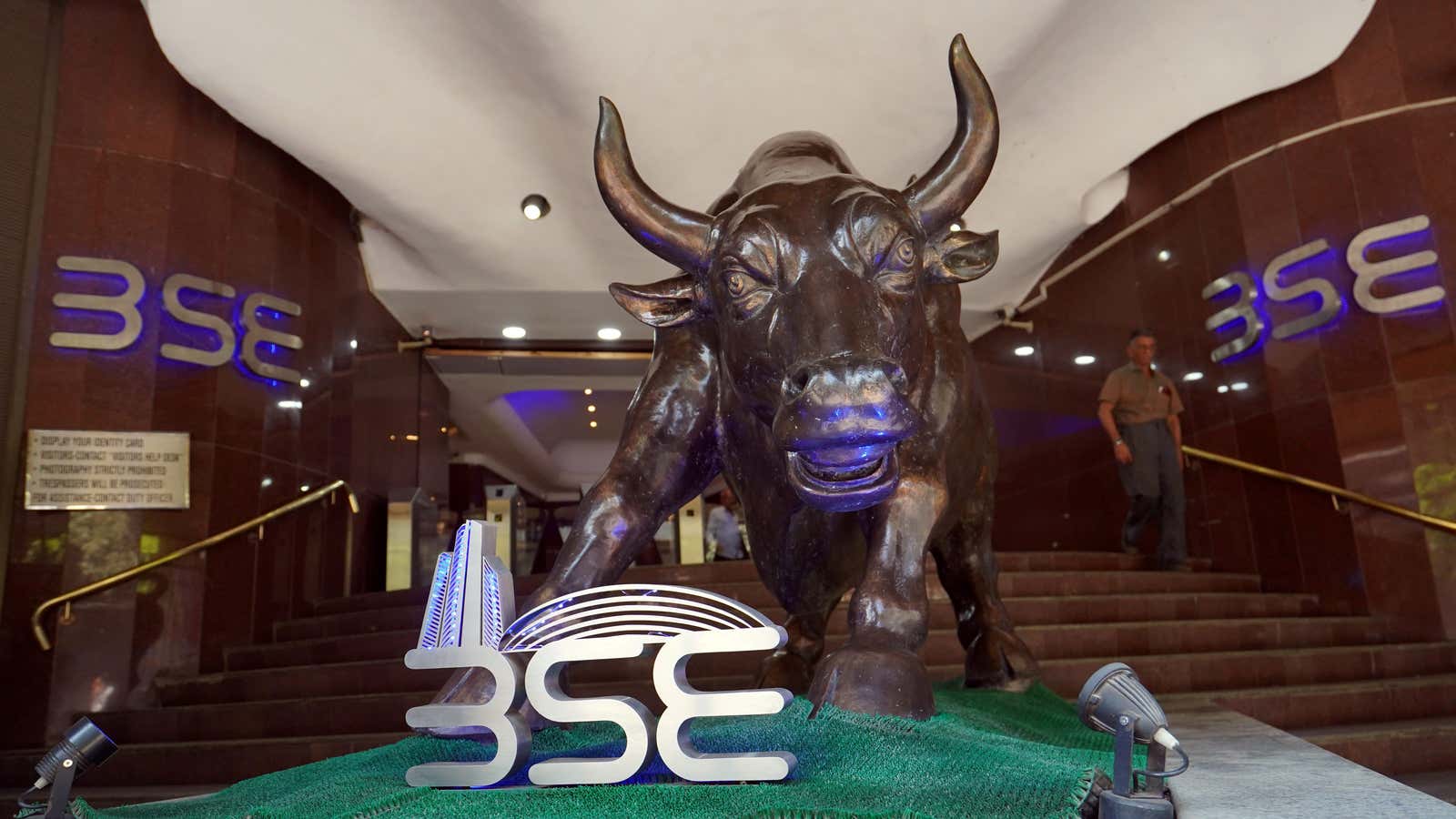Despite a historic economic recession, a host of companies made dazzling debuts on Indian stock exchanges this year.
In 2020 so far, companies have raised $3.5 billion (Rs25,500 crore) from initial public offerings (IPOs) on Indian bourses, which is 40% higher than last year, according to financial market data provider Refinitiv. The strong performance of IPOs is in line with the overall trend in the stock market.
After the worst selloff in a decade in March when the Covid-19 pandemic arrived at Indian shores, the country’s benchmark indices, BSE’s 30-share Sensex and NSE’s 50-share Nifty, have staged a remarkable recovery, scaling new heights.
The largest IPO this year was of SBI Cards & Payment Services in March with the company raising $1.39 billion. The IPO was subscribed 22.4 times the number of shares, reflecting massive investor interest.
Most recently, the IPO of premium and mid-premium biscuit and bakery company Mrs Bector Food Specialty became the most successful offering since 2017 when it was subscribed 198 times. Fast-food chain giant Burger King India also made a stellar debut on BSE and NSE earlier this month, climbing 108% on the day of its listing.
There is now hope that the IPO craze of this year will continue in 2021 especially because more companies will need to raise funds to survive the recession and raising money via this route is less expensive than debt.
“Given the robust IPO markets, we expect many unlisted corporates to list earlier than previously envisaged. The need for growth capital, deleveraging to support growth as well as building buffer capital to face challenges arising on account of Covid-19 will see a buoyant fundraising activity,” said V Jayasankar, senior executive director at Kotak Mahindra Capital. He adds that in 2021, the IPO market will be dominated by “resilient sectors like new-age tech, healthcare, and consumer.”
